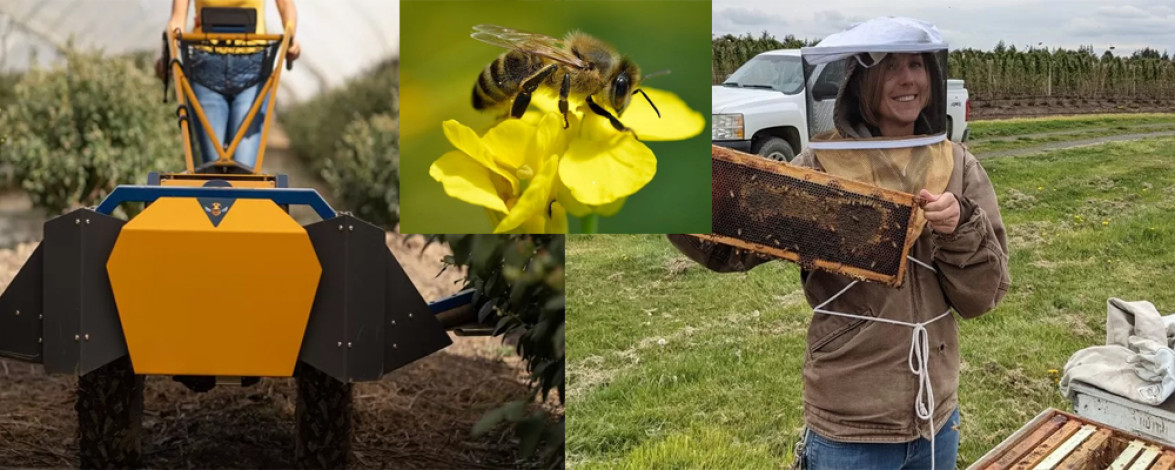
Photo: Collected
Three out of every four crops grown around the world to produce fruits or seeds for human consumption are reliant, at least in part, on pollinators. And it is bees, be they farmed honeybees, or the more than 20,000 different wild bee species, such as bumble bees, that do the heavy lifting.
Why insects are so crucial to
life on Earth
In
the US, bees of all sorts are said to account for 75% of the pollination of the
fruits, nuts, and vegetables grown in the country. It is a similar percentage in
Europe, with other insects, such as wasps and butterflies, making up the
remaining quarter.
Unfortunately
for farmers, bee populations are under pressure, due to factors such as climate
change, habit loss, and the use of pesticides. The European honeybee is also
being badly affected by a parasitic mite called varroa destructor.
BloomX's
technology is currently aimed at two crops - blueberries and avocados - and allows
them to be pollinated even if local bee numbers are very low.
The
firm's main product is called "Robee", which at first glance looks
like a large push-along lawnmower. It has two mechanical arms that stick out on either side.
These
vibrate, and when brushed over blueberry plants, they cause them to release
their pollen. The level of vibration is said to have been designed to imitate
that of bumble bees - the most effective pollinators of blueberries - which use
their wings to agitate the flowers.
BloomX's
other product is "Crossbee", a handheld tool for collecting and
spreading sticky pollen grains between avocado trees. To date, the equipment is
being used in South America, South Africa, Spain, the US, and Israel, and BloomX
says it can increase fruit yields by 30%.
Both
products are controlled by an AI-based software system linked to a mobile phone
app, and each is fitted with a GPS tool so that farm workers know which areas
of a field have been treated.
Sensors
can also be put in place so that the pollination takes place on the optimum
days.
In
California, the cultivation of almonds is a huge business. The state produces
80% of the world's almonds, and the industry is worth an estimated $10.4bn
(£8.3bn) a year.
To
fertilize the total 1.3 million acres of these trees, honeybees are trucked to
California from across the US for the almond flowering season. Some reports say
that 70% of commercial US honeybees are taken to the state for this purpose.
Lisa
Wasko DeVetter, an associate professor of horticulture at Washington State
University, says that this can mean a shortage of honeybees elsewhere in the US
for other crops. Artificial pollination may be able to help fill this gap.
"Travel
can stress honey bees and weaken colonies, but the business of pollinating
almonds is hugely important for beekeeper income, and keeping their operations
economically viable," she says.
"However,
the impact on other crops is that honey bees may be in short supply if other
crops have bloomed at a time that coincides with the California almond
industry."
Other
commentators point to the high mortality rate of honeybees in the almond
fields, with beekeepers blaming exposure to pesticides, and the stress of their
hives being transported thousands of miles.
In
addition, Mr. Sade says that such intensive use of honeybees "poses a
threat to indigenous wild bees who are forced to compete for food, and are
exposed to new diseases".
Introducing
some artificial pollination to the almond fields may help lessen all these
problems. That's certainly the view of Eylam Ran, who says "We are pushing
bees into places they shouldn't be in real life".
Mr
Ram is the boss of another Israeli tech firm specializing in artificial
pollination - Edete.
The
core of its technology is its ability to store pollen for several years without
it deteriorating. To do this it has developed machinery to collect and then
apply the pollen.
See more.
Source:
Online/GFMM
Comment Now